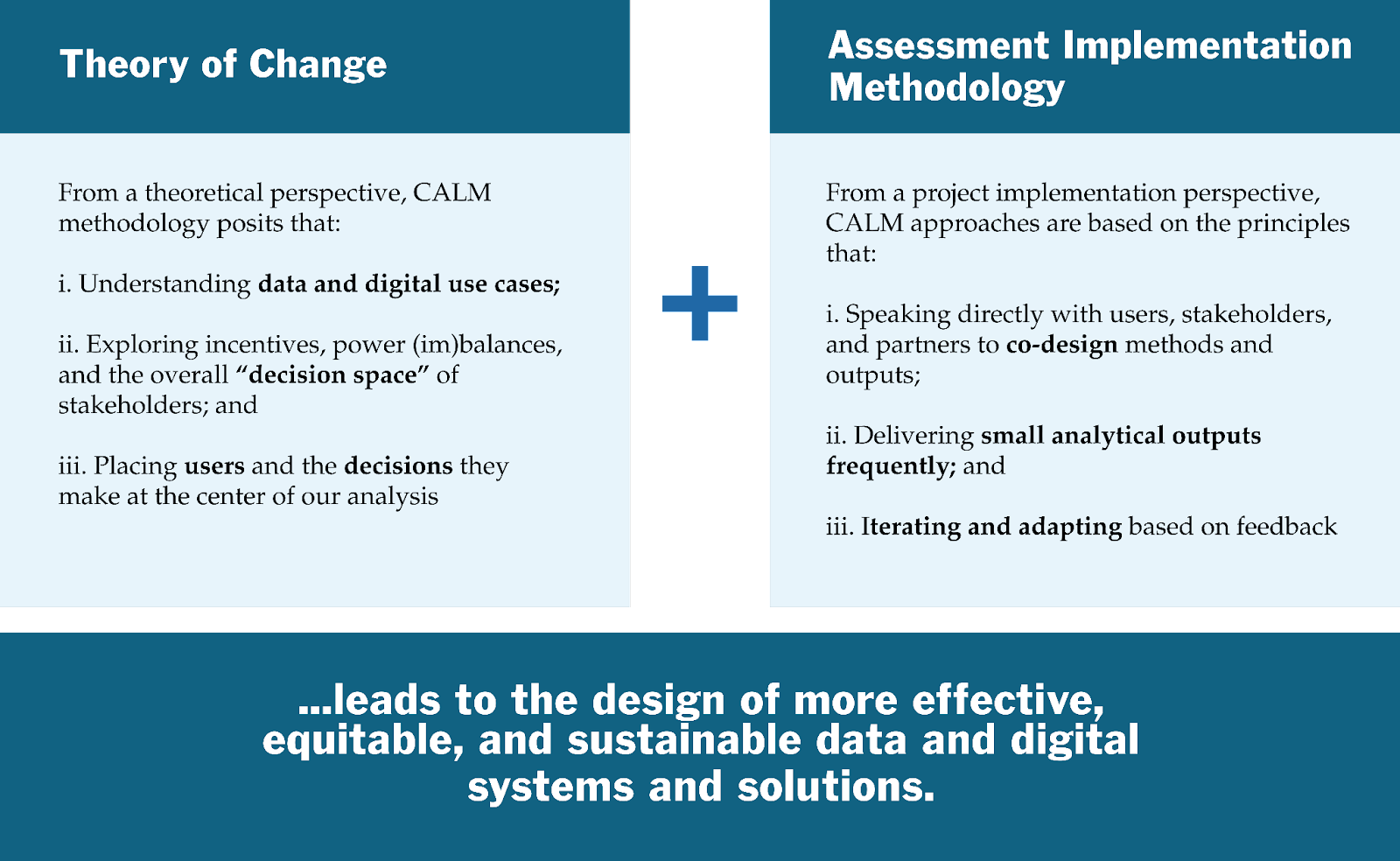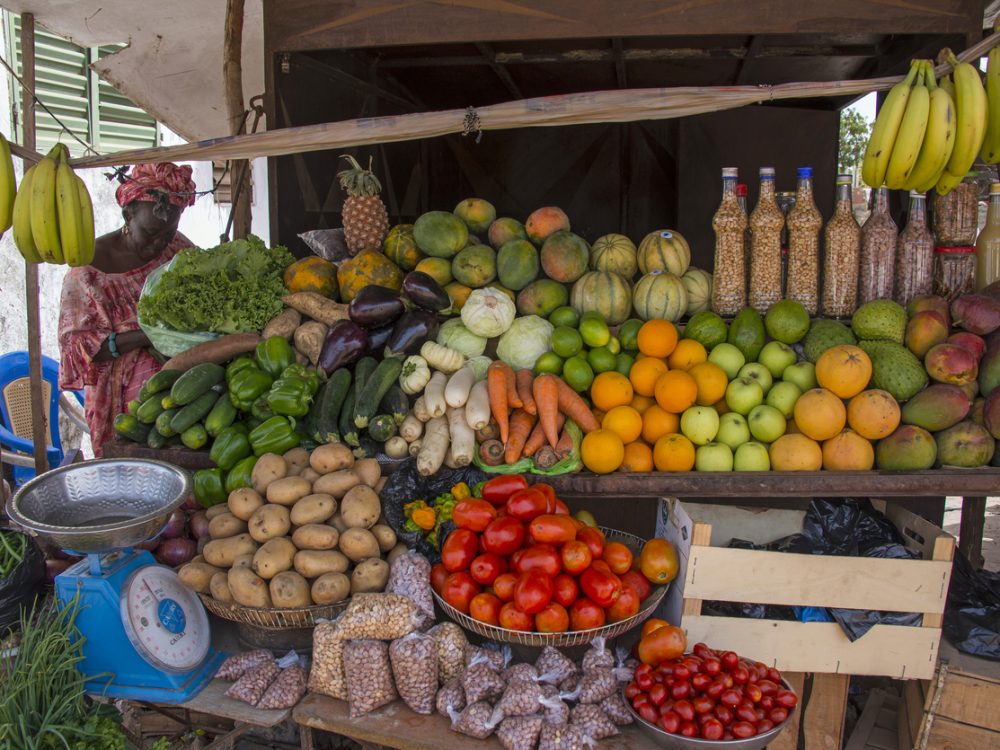
Custom Assessment Landscape Methodology 2.0 – Reflections After Five Years
After nearly 25 years of implementing digital solutions to support development, government, and civil society partners across the globe, Development Gateway: An IREX Venture (DG) has learned that supplying data or digital tools alone is not enough to influence behavior change; there must also be sufficient demand for the solution, and it must fit the needs of key users. To do this requires a holistic understanding of the data and digital ecosystem in which a given solution operates and the institutional, managerial, individual, and technical factors that enable—or discourage—using data and digital solutions for better development decisions. Our flagship Custom Assessment Landscape Methodology (CALM) was first published in late 2018, outlining our approach to optimizing decision-making with data and digital solutions by comprehensively assessing the complex ecosystem of information, tools, decision-makers, power relations, and decision spaces.

Since CALM was first introduced, we have used CALM to:
- Assess the digital agriculture ecosystem in 17 IFAD countries and identify opportunities for strategic investment in data and digital through the Digital Advisory Support Program alongside partners Jenga Lab and Tech Change;
- Identify data-for-decision-making needs in six countries across a wide array of sectors and decision-makers to combat misinformation from the tobacco industry through the Tobacco Control Data Initiative, a trusted and vetted data dashboard; and
- Facilitate data sharing, interoperability, and supply chain optimization through the Visualizing Insights on Fertilizer for African Agriculture program and dashboards.
Five years later, our latest white paper re-introduces CALM to help our partners, collaborators, and teammates better understand and engage with this kind of flexible and adaptive assessment methodology. This “CALM 2.0” publication explains:
- WHAT CALM’s theory of change is, including its roots in the problem-driven iterative adaptation (PDIA) approach to capacity-building, human-centered design thinking, and Agile software development;
- WHY we believe this is the best approach to understanding the complex digital ecosystems in which we work;
- HOW CALM’s implementation methodology aligns with its theory of change by being adaptive and co-designed with stakeholders, rather than rigid and prescriptive; and
- DEFINITIONS for key CALM terms like decision space, use cases, supply/demand/use, and incentives.
Although we’ve updated our documentation, our key message from CALM 1.0 remains the same: we assert that simply supplying data or digital tools alone is insufficient; to be truly equitable and sustainable, digital solutions must involve a systems-level understanding of incentives, decision spaces, and user needs. We hope that CALM 2.0 readers better understand what these approaches and methods are, why DG applies them to ecosystem assessments, and how they can lead to more useful and usable digital systems and solutions. We look forward to the next five years of applying and adapting CALM and developing sustainable digital tools to drive better development outcomes.
Read the entire white paper here.
Share
Recent Posts

Development Gateway Collaborates with 50×2030 Initiative on Data Use in Agriculture
Development Gateway announces the launch of the Data Interoperability and Governance program to collaborate with the 50x2030 initiative on data use in agriculture in Senegal for evidence-based policymaking.

Strengthening Online Safety Through Prevention in the Philippines
Tech-Facilitated Gender-Based Violence continues to evolve alongside emerging technologies. This blog explores how preventative measures, such as the Safety By Design approach, can be used to create a safer internet.

Preparing Jordan’s Education System for the AI Age
This blog introduces Asas, an early grade education program led by IREX and DG in partnership with Jordan’s Ministry of Education, and explores what AI readiness looks like in early grades and how AI can be integrated safely and sustainably into education systems.